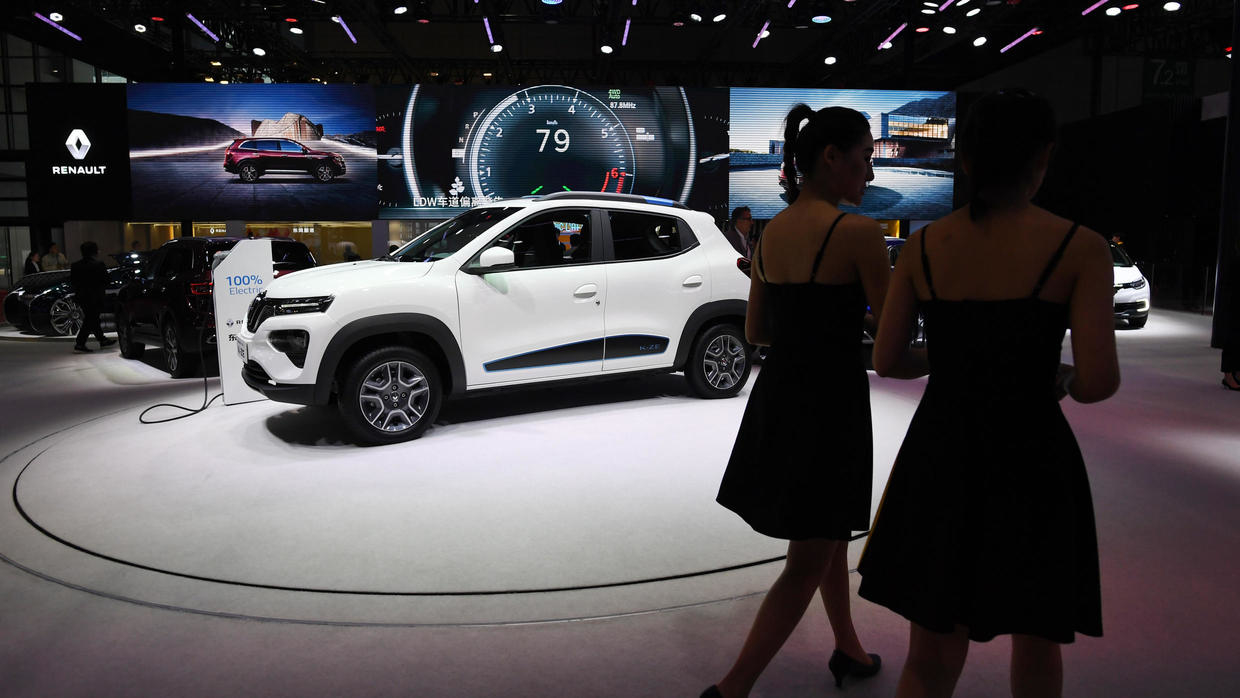
26 Apr Did Covid-19 kill a French car plant in Wuhan?
Radio France Internationale, April 17, 2020
Click here for a link to the podcast
French automaker Renault says its China operations will from now focus exclusively on electric vehicles, after it pulled out of a joint venture with Wuhan manufacturer Dongfeng, which produces conventional internal combustion engines. Was it Covid-19 or climate change that inspired the move?
The Dongfeng-Renault factory was located just outside the epicentre of the coronavirus outbreak: the city of Wuhan. Under the Chinese government’s lockdown, the factory was forced to close –temporarily initially – and its French expatriates were sent home.
But on 14 April, the closure became definite. In a press release, the company said that it will now concentrate on “light commercial” and “electric vehicles,” and “transfer its shares in Dongfeng Renault Automotive Company Ltd (DRAC) to Dongfeng Motor Group (DFMG). DRAC will stop its Renault brand-related activities.”
The Chinese partner, DFMG, downplayed the pull out, saying in its press release that due to the “limited financial contribution of Dongfeng-Renault (less than 2 percent in both production and sales volume)…the restructuring will not have a material impact on the business operation or financial position of the Group.”
But was it the coronavirus that sounded the death knell for this joint venture?
“It is a contributing factor,” says Bill Russo, founder of the Shanghai-based Automobility Ltd, a consultancy that specialises in the Chinese car market. “The coronavirus is causing companies to reassess their investment plans. Businesses that hadn’t been performing as planned, will need to be unwound.

“In the case of Renault in China, they have not been historically a very strong performer in the market. And this was a way of cutting their losses,” he says.
Junk status
Dongfeng-Renault sold only 18,607 cars in 2019, according to Reuters, far below its annual capacity of 110,000. It reported an operating loss of more than 1.5 billion yuan (190 million Euro) and with a year-on-year sales decline of 88.65 percent – it was the worst performer of the DFMG, according to the March 2020 sales report.
The French partner company, Renault, posted its first annual loss in a decade, prompting Moody’s Investors Service on 18 February to cut the company’s ratings from Baa3 to Ba1, or “junk” status “anticipating a further decline in the group’s operating margin and the continuing weakness of the market environment”.
The cost “to comply with CO2 regulation in the European Union (EU) and the ongoing electrification of Renault’s fleet” further affected the company’s profitability, according to Moodys.
Renault in China was historically never a very strong performer in the market. And I think this was a way of cutting their losses.
Car market slumps
A general slump in the car market was aggravated by an increasingly nasty trade war between the US and China.
“The trade war certainly was a headwind,” says Russo, but he points out that the Chinese market had started to contract prior to the trade war.
So why did Renault fail while other car companies seemed to do better?
When China opened up, foreign car companies were obliged to create joint ventures with a local Chinese partner, which would retain 51 percent control.
Strong relationship
Foreign car companies were also obliged to use the latest technology in the common venture. Initially, the foreign partner could have two Chinese partners, but a Chinese company was allowed an unlimited number of foreign partners.
The Wuhan-based Dongfeng Motor Group has joint ventures with Peugeot/Citroën, Honda and Renault. But according to Erik van Ingen-Schenau, of the China Motor Vehicle Documentation Center, Renault was never fully committed to China. “Possibly because they teamed up with Nissan (referring to the Renault-Nissan-Mitsubish alliance), and estimated that Nissan would do the work in China,” he says.
Unlike German and US car manufacturers, Renault was a relative latecomer on the Chinese market. Attempts to get a foothold in the 1990s failed.
“Volkswagen, Audi and GM were early, they both had a localised business model – not just manufacturing but also the sourcing, market development and branding itself,” says Russo. “A common formula for success is a very strong relationship with your local partner.”
Electric alternative?
Following the global trend into developing electric cars, Renault now says it wants to develop electric cars using two existing joint ventures: eGT New Energy Automotive Co, Ltd (eGT) and Jiangxi Jiangling Group Electric Vehicle Co. Ltd (JMEV).
According to 2019 statistics of the China Association for Automobile Manufacturers (CAAM,) China produced over 21 million cars for the year, among them 860,000 electric cars. But sales are declining and the time to go electric may not have been wisely chosen.
Electric cars “are going through a period where they are not the preference,” says Musso, pointing to falling oil prices. And in an overall market that saw a decline of 45 percent, the EV market was down 54 percent.
“It underperformed relative to the overall market which was already down. So the EV market is under stress,” he says.



Sorry, the comment form is closed at this time.